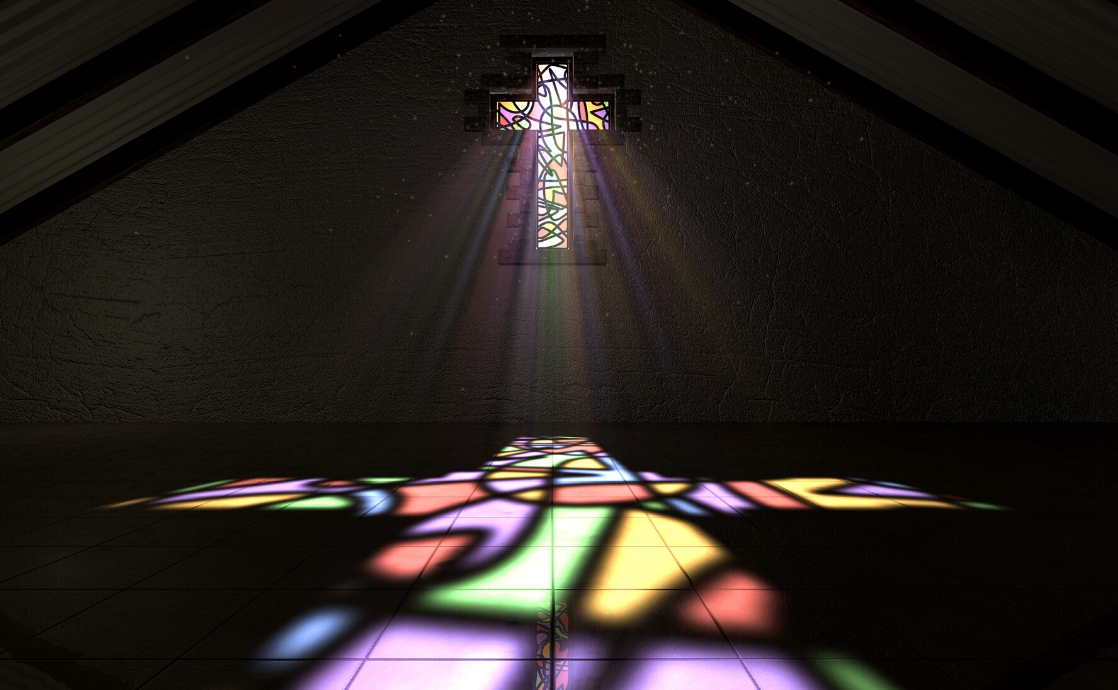The views expressed in our content reflect individual perspectives and do not represent the authoritative views of the Baha'i Faith.
Growing up as a Christian child, I knew nothing about Christian theology, save that it had to do with a mysterious concept called the trinity and that Jesus was somehow God incarnate.
As an adult, however, I’ve realized that we know so little about the nature of the Creator, that I’m not sure the assertion that God took on flesh makes much intellectual sense. All in all, this assertion seems a bit too Greco-Roman, something that came out of the culture at the time rather than Christ’s actual teachings.
The costs of that incarnate assertion have been enormous: It created an insuperable barrier to Christianity for most Jews, enabled Christians to believe they were morally superior to Jews and thus to treat them (and others) shamefully, created endless useless theological parsing and “heretic”-making within Christianity, and put Christians at odds with all Muslims.
RELATED: Forced Religious Coercion – Still Happening in Our Time
It’s not that Jesus was just an ordinary man – he was not. He was a Chosen One of God, a divine messenger with a divine mission, divine qualities, divine words, and divine acts. But that did not make him God; it made him His agent – his son, if you prefer – though there is no need to get physical about this son-ship. Nor is there any need to get caught up in the metaphysics of what it means to be God’s only and preexisting son. The more essential point: Jesus was God’s agent in a way that we are not, and people were called to follow him.
The Baha’i teachings make this clear. Abdu’l-Baha wrote:
… Baha’is say that the sovereignty of Christ was a heavenly, divine, everlasting sovereignty, not a Napoleonic sovereignty that vanisheth in a short time. For well nigh two thousand years this sovereignty of Christ hath been established, and until now it endureth, and to all eternity that Holy Being will be exalted upon an everlasting throne.
But what about miracles, some Christians may say – don’t they prove that Jesus was God incarnate? No!
First of all, in ancient times many were believed to have worked miracles. All you have to do is read Herodotus, who lived four hundred years before Christ, to see that. Further, miracles are attributed, rightly or wrongly, to the founders of all religions and to many of their followers. So, if you grant that working miracles by one made him God incarnate, then, all would have to be God incarnate. But even if a person was empowered by God to work miracles that would not make him God. It would only mean that he was empowered by God to work miracles. Thus, the appeal to miracles to establish that a person was God incarnate is not credible.
In the end, Christianity would have been better served if the early church fathers had relaxed their obsession with trying to explain Christ’s reality and simply understood Jesus as a divine agent bearing the Word of God and invested with a previously unknown majesty. He was not just a man, because he brought the Word of God and his life revealed holiness never before seen, but he was not the Creator of the universe, though he came from that Source and was given authority to create a civilization.
Even the Book of Revelation tried to make plain the critical distinction between Jesus as man and God. When the angel, who was Jesus, announced that he was coming soon (Rev 22:7), John, receiving the revelation, fell down to worship the angel. The angel, however, rebuked John saying: “Do not do it! I am a fellow servant with you and with your brothers the prophets and of all who keep the words of this book. Worship God!”
RELATED: War, the Papacy, and Christianity
Unfortunately, in Christianity the church fathers did not do this. They became focused on arcane definitions emphasizing Christological distinctions that even now defy understanding and relevance. Had they focused rather more on advancing a Christian life, perhaps the world would be a better place.
Erecting the world’s biggest statue of Jesus or the world’s tallest cross, seemingly the occupation of many Christians, will not solve any of our modern problems. The goal of Christianity has never been the deification of Jesus; it was and is to build the kingdom of God on Earth, to construct a heavenly civilization, not erecting giant idols.
The Baha’i teachings point out that building a spiritual kingdom here among humanity has always been the focal point of every prophet and every religion. Abdu’l-Baha wrote:
For a single purpose were the Prophets, each and all, sent down to earth; for this was Christ made manifest, for this did Baha’u’llah raise up the call of the Lord: that the world of man should become the world of God, this nether realm the Kingdom, this darkness light, this satanic wickedness all the virtues of heaven – and unity, fellowship and love be won for the whole human race, that the organic unity should reappear and the bases of discord be destroyed and life everlasting and grace everlasting become the harvest of mankind.
So, while Christ or Buddha or Baha’u’llah brought us the message that would allow us to build God’s kingdom here on Earth, the message itself, and the holy impetus behind and inside it, came directly from the Supreme Being.
















Comments
Sign in or create an account
Continue with Googleor